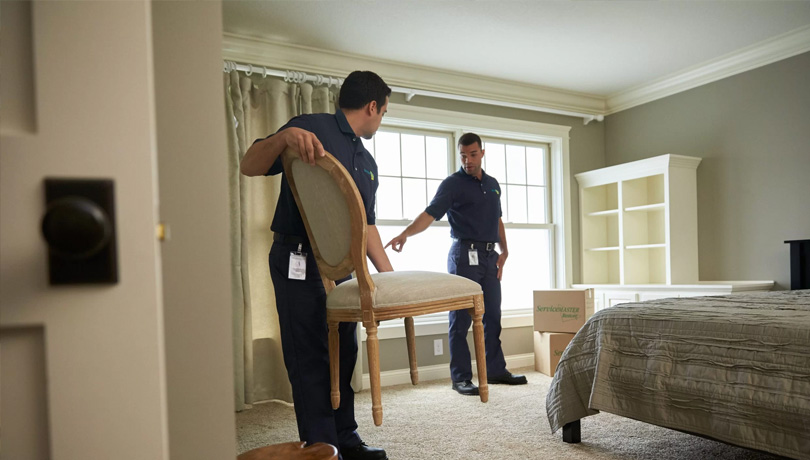Relocating to another state is a big decision that often stirs up a mix of excitement and apprehension. Whether you’re chasing new job opportunities, looking for a change of scenery, or downsizing to simplify your life, the process involves numerous moving parts that can feel overwhelming. From managing logistics to adjusting emotionally, the challenges of moving are significant but not insurmountable. With the right preparation, you can navigate the process more smoothly and even turn it into an opportunity for growth.

Financial Challenges of Relocating to Another State
Cost of Living Adjustments
Moving to a new state often means adapting to a new cost of living, which could either strain or ease your budget. Key areas to research include:
- Housing Costs: Rental and property prices vary widely depending on location. Consider using online tools to compare averages in your new state.
- Utilities: Energy, water, and waste disposal costs may differ due to climate or local infrastructure.
- Transportation: Fuel prices, public transport costs, and tolls are worth factoring into your budget.
- Groceries and Dining: Everyday essentials could be more or less expensive, depending on local economies.
Preparing a comparison of your current expenses versus expected costs in your destination can help you avoid unpleasant surprises.
Moving Expenses
Relocating across state lines isn’t cheap. Common expenses include:
- Professional Movers: Long-distance moving companies charge based on distance, weight, and services.
- DIY Moving Costs: Truck rentals and gas can add up quickly if you’re handling the move yourself.
- Packing Supplies: Boxes, tape, and padding materials are often underestimated costs.
- Temporary Accommodation: If your move-in date doesn’t align with your move-out, you may need interim housing.
- Travel Costs: Airfare or road trip expenses for your family should be budgeted.
To manage these costs, consider requesting quotes from multiple moving companies or consulting a Relocation and Downsizing Services provider for assistance.
Need Hoarding Cleanup? We’re Just a Call Away
& Ready to Respond Quickly!

Logistical Challenges
Securing Housing
Finding a suitable place to live in a state you may not know well is one of the biggest hurdles. Here’s what to consider:
Review lease agreements or purchase contracts carefully to avoid legal pitfalls.
Research neighborhoods that match your lifestyle and budget.
Schedule virtual tours if you can’t visit in person.
Enlist a real estate agent with local expertise for smoother negotiations.

Transportation Changes
Every state has its unique transportation challenges. Depending on your destination, you may face:
- The need to switch from public transit to owning a car—or vice versa.
- Higher registration and insurance costs.
- Learning new traffic rules, toll systems, or road networks.
- Longer commute times if housing is far from your workplace.
Planning your transportation strategy early can save time and frustration during the transition.
Administrative Tasks
The paperwork involved in a state-to-state move can seem endless. Common tasks include:
- Updating your driver’s license and vehicle registration.
- Changing your address for utilities, subscriptions, and financial accounts.
- Setting up new insurance policies for health, home, and auto.
- Registering to vote and understanding local election processes.
Create a checklist of these steps to ensure nothing slips through the cracks.
Emotional and Social Challenges
Cultural Adaptation
Different states can feel like entirely different worlds. From dialects to social norms, adapting to a new culture can take time. Be prepared for changes in:
- Local traditions and festivals.
- Food preferences and restaurant options.
- Political and social climates.
- Outdoor activities or recreational opportunities.
Building a Social Network
Moving away from your support system can be emotionally challenging. To establish new connections, consider:
- Joining local interest groups or hobby clubs.
- Introducing yourself to neighbors.
- Attending community events or volunteering.
- Using apps or social media to meet like-minded individuals.
Maintaining regular communication with old friends and family can also ease feelings of isolation.
Stress Management
Relocating is inherently stressful, especially if you’re balancing work or family commitments. To manage this:
- Break the move into manageable tasks to avoid feeling overwhelmed.
- Take breaks to focus on self-care.
- Seek professional help, such as therapists or counselors, if the emotional toll becomes too great.
Practical Considerations
Healthcare
Navigating a new healthcare system can feel daunting, especially if you’re relocating to a state with different policies or networks. Plan for:
- Transferring medical records to new providers.
- Researching local healthcare facilities.
- Understanding state-specific insurance regulations.
Educational Systems
For families with children, relocating can disrupt routines. Ensure a smooth transition by:
- Researching school districts ahead of time.
- Enrolling children early to secure spots in preferred schools.
- Communicating with educators about your child’s needs and history.
Climate Adjustments
Moving to a new climate can impact everything from your daily routine to your wardrobe. If you’re transitioning to a drastically different environment:
- Plan for seasonal gear—coats, boots, or even sun protection.
- Be mindful of heating or cooling costs in your new home.
- Explore how the climate may affect your favorite activities.
Simplify Your Move with Relocation & Downsizing Services
The challenges outlined above underscore how demanding interstate relocation can be. While proper preparation is key, enlisting professional relocation & downsizing services can make a significant difference. These services handle the heavy lifting—from packing and transportation logistics to organizing and downsizing—freeing you to focus on your personal and emotional adjustment.
Conclusion
Relocating to another state is no small feat, with financial, logistical, and emotional challenges to navigate. By researching your destination, preparing for costs, and tackling administrative tasks head-on, you can minimize disruptions and embrace your new beginning. Building a social network, adjusting to a new culture, and relying on professional services can further ease the transition. Remember, the complexity of your move doesn’t have to overwhelm you. Thoughtful planning and the right support system can make all the difference.
LifeCycle Transitions understands the intricacies of relocation and downsizing. As experts in Relocation & Downsizing Services, we offer a seamless, stress-free experience tailored to your unique needs. Whether you’re seeking help with packing, organizing, or simplifying your space, our team is here to make your move a smooth and positive step forward.
